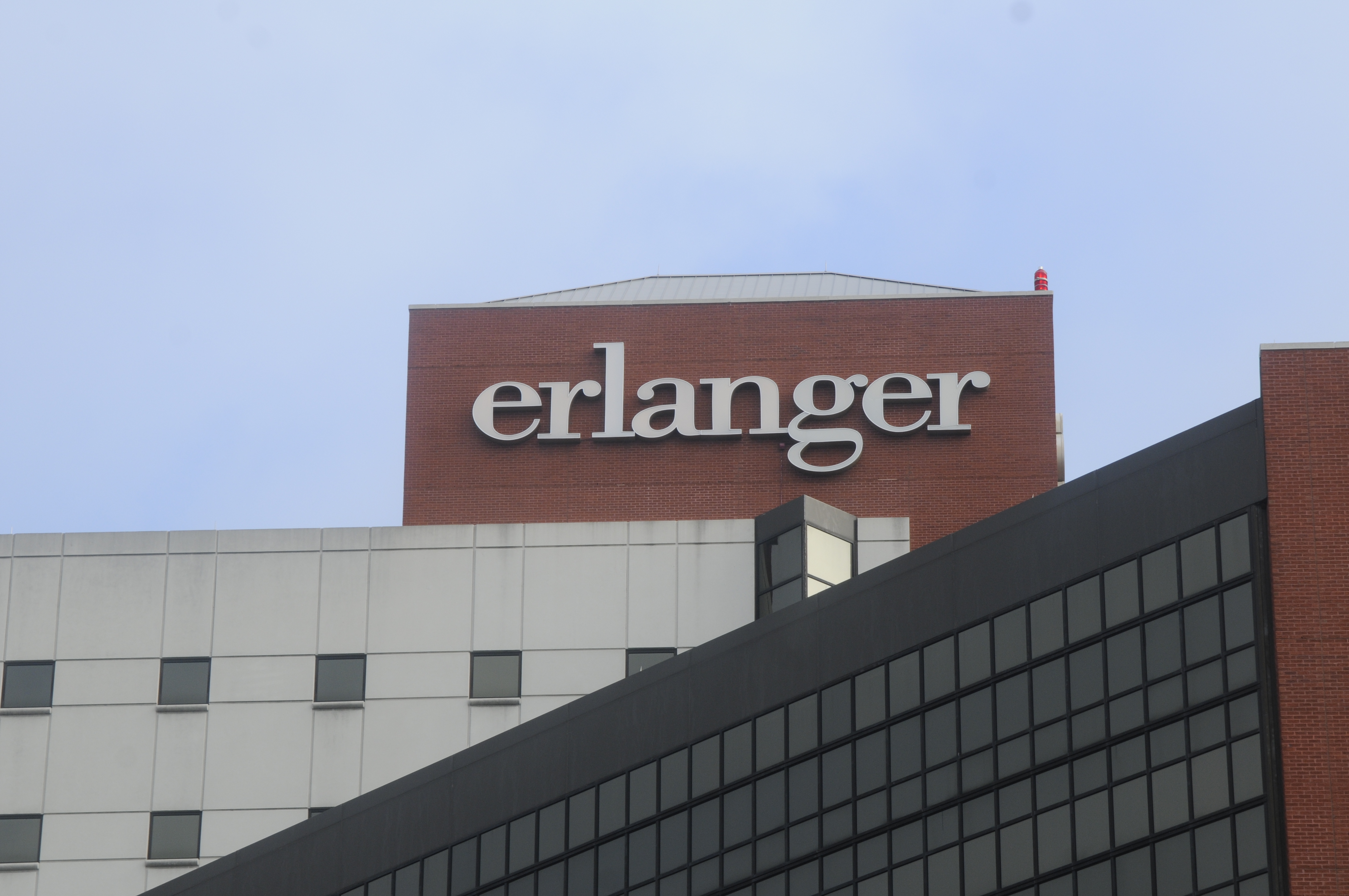Erlanger Health System officials have a disturbing way of making Erlanger look bad, even when they say they are reorganizing and trying to do better. It's even worse that they gratuitously damage the hospital's public relations by denying legitimate requests for public records -- this newspaper has three formal requests for records pending -- while Memorial Hospital, its chief competitor, is drawing attention for its high rating as one of the nation's most distinguished hospitals for clinical excellence.
Memorial has already attracted some of the physicians' groups that previously centered their practices at Erlanger. That has helped Memorial build its in-patient surgeries, the base for hospitals' financial health, while revenue at Erlanger has plunged, leaving it with a $10.3 million shortfall through December, halfway through its current fiscal year.
Memorial and Hamilton Medical Center in Dalton, Ga., were ranked among the best hospitals in the nation as measured by outcomes of 26 common medical procedures and diagnosis, according to a report issued this week by Healthgrades, a Denver-based provider of consumer health-care information. Erlanger wasn't on the list.
Erlanger and Park Ridge Hospital, to be fair, each received high ratings last year on one of two similar national lists of best hospitals in selected categories. So it would be unfair to surmise that Erlanger's standard of care and capacity for excellent treatment is slipping because of its current deficit and poor public relations, or to assume that it will allow its competitors to eat its lunch.
It's also true that the public perception of Erlanger -- its public relations status in the broadest sense -- is more vulnerable to media coverage because it is a public institution. Contrary to the private status of its local peers, Erlanger is required to abide by the state's open meetings and records laws. When its operations go awry, it can't hide behind closed doors; it automatically attracts more public and media scrutiny.
But at the present, as in recent years, its leadership is still needlessly damaging its public image. Just two weeks ago, and after a month of wrangling, for example, the Erlanger board of trustees, on a narrow 5-4 vote, gave former CEO Jim Brexler a whopping $728,000 severance package after forcing him to leave amid Erlanger's plunge into red ink. Brexler's most strident board critics reasonably argued that he could or should have been fired for cause, and that he didn't deserve severance pay -- much less a 15-month severance package costing three-quarters of a million dollars.
On the heels of Brexler's ouster, interim CEO Charlesetta Woodard-Thompson announced that six of the 15 vice president slots in Erlanger's Brexler-bloated executive wing would be terminated, for a savings of $1.5 million. She and her staff pointed to that savings as an example of fairly spreading the burden of cost-cutting which would help balance a money-saving measure directed at Erlanger's hourly employees. That measure forces non-care givers among the hospital's 4,000-plus employees to take 12 days of leave by March in order to save $1.4 million.
That was unfair given the generous severance to Brexler, who at this time last year gave the lion's share of $4 million in bonuses to the hospital's executives and top managers. The forced furloughs badly hurt morale among the hourly workers, who need every penny of their paychecks to make ends meet.
And as it now stands, it is also unlikely that the so-called executive trimmings will result in much savings. Four of the six vice presidents have been rotated to other high-ranking slots, among them the interim CEO, whose salary shot up $160,000, from $326,720 to $486,720.
Erlanger executives will not disclose what has happened to the other two executives, or whether they received severance packages. They have declined to disclose details on the compensation and job postings they provided shifted executives. Nor will they disclose the findings of a survey of physicians about their perception and relations with Erlanger; nor the number of surgeries performed at the hospital in selected months over the past several years.
Refusing to release records that are required by law to be disclosed doesn't keep Erlanger employees, the general public or the media from making crucial observations, nor does it satisfy the law. It only deepens public distrust, further damaging the hospital -- and its valued public role -- at a particularly precarious time.

